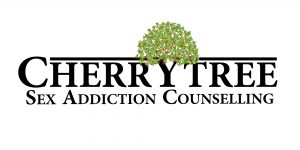- 07879 375480
- info@sexaddictioncounselling.co.uk
- Mon - Sat: 9:00 - 20:00

Are you concerned that you are addicted to porn? Porn addiction, also known as compulsive pornography use or problematic pornography use, refers to a pattern of behaviour where an individual feels unable to control their consumption of pornography despite negative consequences in various areas of their life.
It’s characterised by an excessive, compulsive, and often escalating use of pornography that interferes with daily functioning, relationships, and overall well-being.
While pornography itself is not inherently addictive, some individuals may develop compulsive patterns of use that mimic addiction. Like other forms of addiction, pornography addiction involves a cycle of craving, viewing, and temporary satisfaction, followed by feelings of guilt, shame, and the desire to consume more pornography to alleviate negative emotions or seek pleasure.
Signs and symptoms of an addiction to porn may include:
It’s important to note that having an addiction to porn or experiencing compulsive sexual behaviours can affect individuals of any gender, age, or background, and it can have significant psychological, emotional, and social impacts. Treatment for pornography addiction typically involves a combination of therapy, support groups, and self-help strategies aimed at addressing underlying issues, developing healthier coping mechanisms, and rebuilding relationships.
Counselling can be a crucial component of addressing and overcoming pornography addiction. Here’s how counselling can help individuals struggling with porn addiction:
A trained counsellor can help individuals identify the underlying triggers and issues that contribute to their pornography addiction. These triggers could include stress, loneliness, trauma, or unresolved emotional issues. By understanding the root causes of their addiction, individuals can develop healthier coping mechanisms and strategies to address these underlying issues.
Counselling sessions often focus on teaching individuals healthy coping skills to manage cravings and deal with stressors without turning to pornography. This may involve learning relaxation techniques, mindfulness practices, and effective problem-solving skills.
Porn addiction can often be accompanied by feelings of shame, guilt, and low self-esteem. Counsellors work with individuals to challenge negative self-perceptions and develop a more compassionate and positive self-image. By building self-esteem and self-compassion, individuals are better equipped to resist the urge to engage in addictive behaviours.
CBT is a commonly used therapeutic approach for addiction treatment, including pornography addiction. In CBT, individuals learn to identify and challenge distorted thoughts and beliefs that contribute to their addictive behaviours. They also learn to develop healthier thought patterns and responses to triggers, which can help them break free from the cycle of addiction.
Pornography addiction can often strain or damage relationships with partners, family members, and friends. Counselling sessions provide a safe space for individuals to explore and address relationship issues, improve communication skills, and rebuild trust with their loved ones.
Counsellors work with individuals to develop personalised relapse prevention plans to minimise the risk of returning to addictive behaviours. These plans may include identifying high-risk situations, developing coping strategies, and establishing support networks to help individuals stay on track with their recovery goals.
Counselling provides individuals with a supportive and non-judgemental environment where they can openly discuss their struggles, progress, and setbacks. Counsellors serve as allies in the recovery journey, offering encouragement, guidance, and accountability as individuals work towards overcoming their addiction.
Overall, counselling plays a vital role in pornography addiction treatment by addressing underlying issues, teaching coping skills, promoting self-awareness and growth, and providing ongoing support throughout the recovery process.
We don’t know the answer to that question, but we do know that if you have landed on this page, it is because you or someone you know is struggling with unwanted or troubling sexual behaviours.

| Cookie | Duration | Description |
|---|---|---|
| cookielawinfo-checkbox-analytics | 11 months | This cookie is set by GDPR Cookie Consent plugin. The cookie is used to store the user consent for the cookies in the category "Analytics". |
| cookielawinfo-checkbox-functional | 11 months | The cookie is set by GDPR cookie consent to record the user consent for the cookies in the category "Functional". |
| cookielawinfo-checkbox-necessary | 11 months | This cookie is set by GDPR Cookie Consent plugin. The cookies is used to store the user consent for the cookies in the category "Necessary". |
| cookielawinfo-checkbox-others | 11 months | This cookie is set by GDPR Cookie Consent plugin. The cookie is used to store the user consent for the cookies in the category "Other. |
| cookielawinfo-checkbox-performance | 11 months | This cookie is set by GDPR Cookie Consent plugin. The cookie is used to store the user consent for the cookies in the category "Performance". |
| viewed_cookie_policy | 11 months | The cookie is set by the GDPR Cookie Consent plugin and is used to store whether or not user has consented to the use of cookies. It does not store any personal data. |